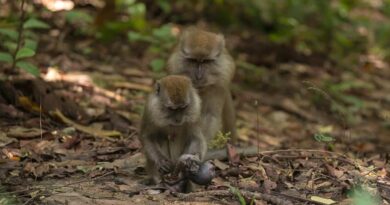NASA Researcher Harvests Crops In Antarctica To Test Technologies For Future Mars And Moon Missions
NASA scientist Jess Bunchek who is currently conducting research in a greenhouse in Antarctica has harvested her first crops as part of a project looking at how to grow plant products on the Moon and Mars.
Trained botanist and plant pathologist Jess Bunchek from NASA’s Kennedy Space Centre located on Merritt Island in the US state of Florida will be obtaining plant-based research in the EDEN ISS – Antarctic Greenhouse until early 2022.
The project is a part of a joint series of experiments between NASA and the German Aerospace Centre (DLR) and focuses on vegetable cultivation techniques which should be implemented on the Moon and Mars in the future.
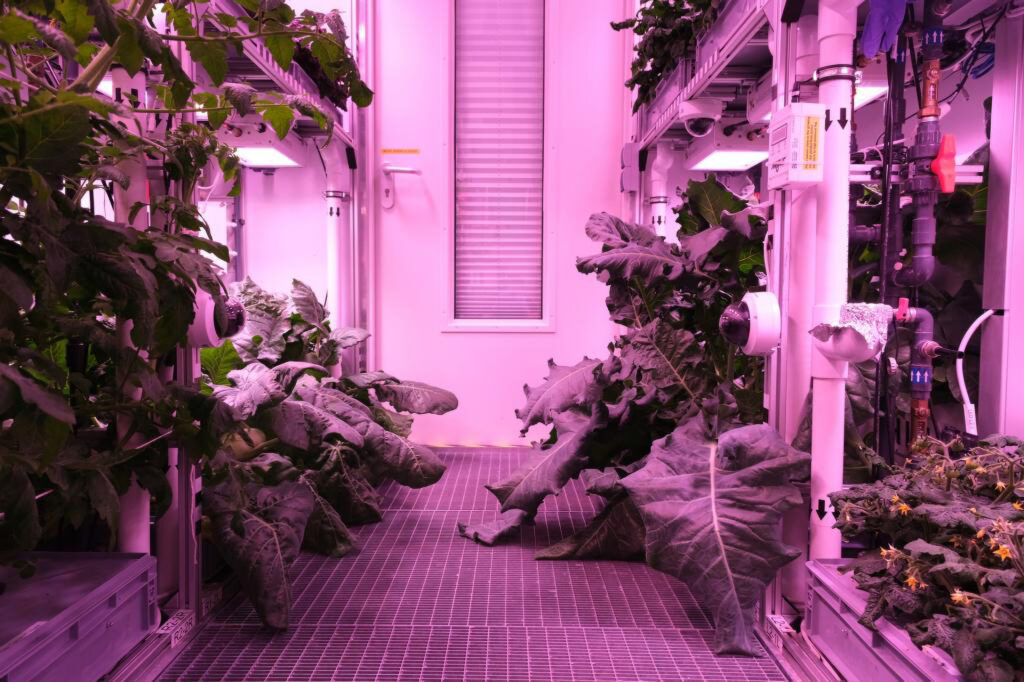
The young scientist has been growing vegetables such as lettuce, cucumbers, tomatoes, peppers and different varieties of herbs under harsh environmental conditions and temperatures below 50 centigrade while at the same time using as little time and energy as possible.
Bunchek will be testing greenhouse technologies and plant varieties which should serve as a basis for astronauts during their missions in space.
The young American who is a part of the 10-person crew residing on the Neumayer Station III operated by the Alfred Wegener Institute, Helmholtz Centre for Polar and Marine Research (AWI) is also recording the greenhouse and yield effects on the isolated hibernation crew in the perpetual ice.
In a press release sent to Real Press, Bunchek said: “The polar night will soon begin here on the Antarctic Ekstrom Ice Shelf. With the nine other members of the overwintering crew, it almost feels like we are alone on another planet.”
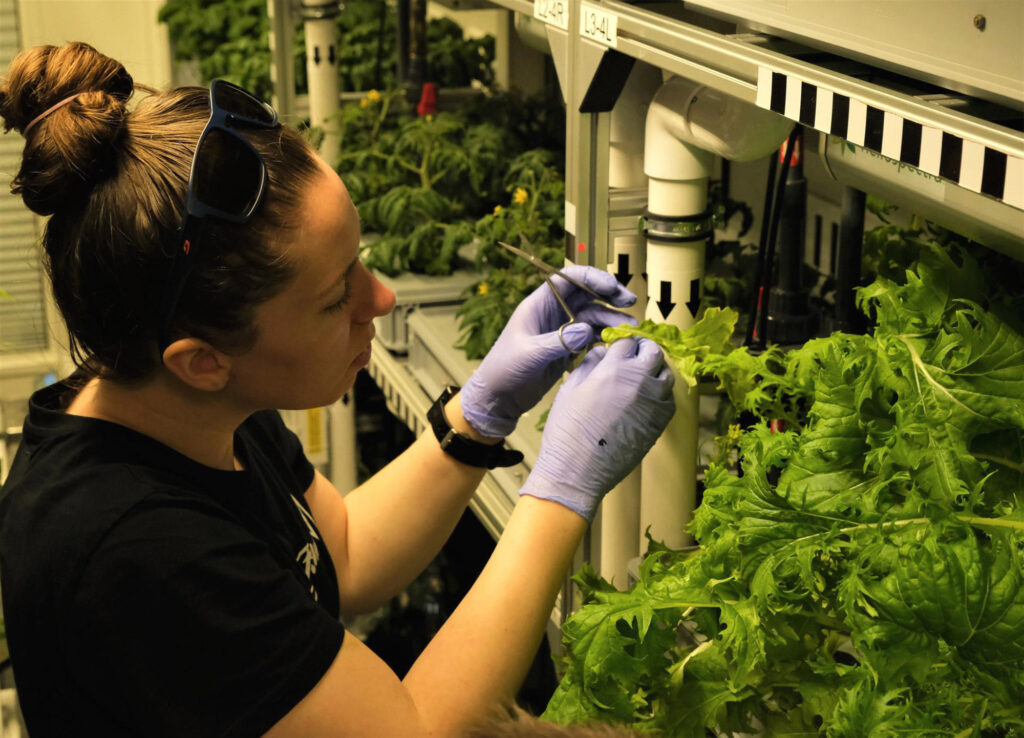
“In this hostile world it’s fascinating to see greenery thrive without soil and under artificial light.”
Bunchek was able to sow the first seeds in recent weeks following a technical reconditioning of the EDEN ISS platform conducted by her and the DLR team.
A few days ago, she harvested the first crops grown in the Antarctic greenhouse which included lettuce, kohlrabi, mustard greens, radishes and various herbs.
In the first extensive overwintering research campaign in 2018 the greenhouse produced a total of 268 kilograms (590 lbs) of food in nine and a half months with just 12,5 square metres (134,5 square feet) of available space.
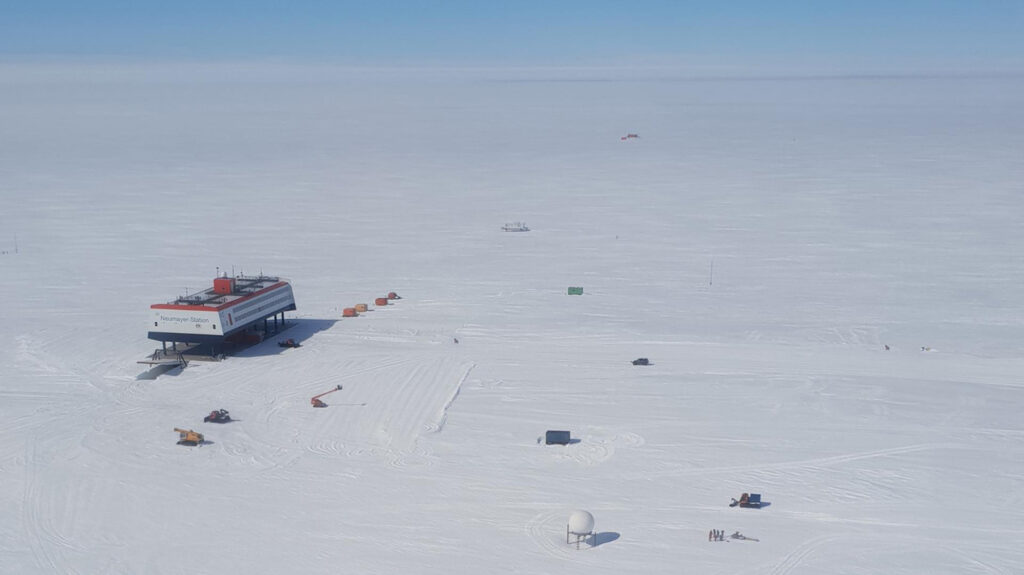
This included 67 kilogrammes (148 lbs) of cucumbers, 117 kilogrammes (258 lbs) of lettuce and 50 kilogrammes (110 lbs) of tomatoes.
The EDEN ISS greenhouse uses particularly robust varieties which were selected by the EDEN ISS Project team and from experiments at NASA’S Kennedy Space Centre as a part of the VEGGIE project on the ISS which Bunchek primarily supported.
DLR and NASA’s mission aims to record and compare development and growth of different crop varieties under conditions provided by the Antarctic greenhouse.
In addition, microbes which have the ability to thrive in the greenhouse alongside cultivated plants are also being studied.
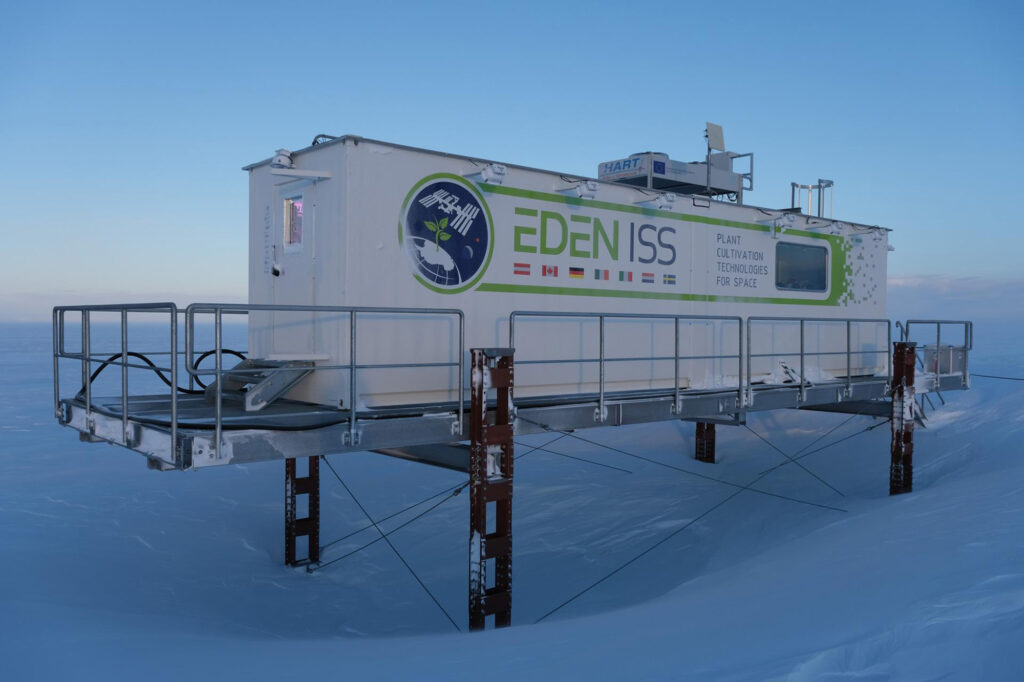
Plant physiologist Ray Wheeler from the NASA Kennedy Space Centre explained that the space agency will be testing a plant watering concept in the EDEN Module which can operate in u-gravity settings like the ISS.
The system contains the water and delivers it to the plants by a passive method.
Wheeler said: “This will provide a side-by-side comparison with the aeroponically grown plants of EDEN ISS.”
In aeroponic irrigation the roots of the plants which are growing in soilless systems are regularly sprayed with a nutrient solution.
Meanwhile, Bunchek records every second of her Antarctic greenhouse activities which include sowing, harvesting, tending, cleaning, maintaining, calibrating, repairing and scientific research.
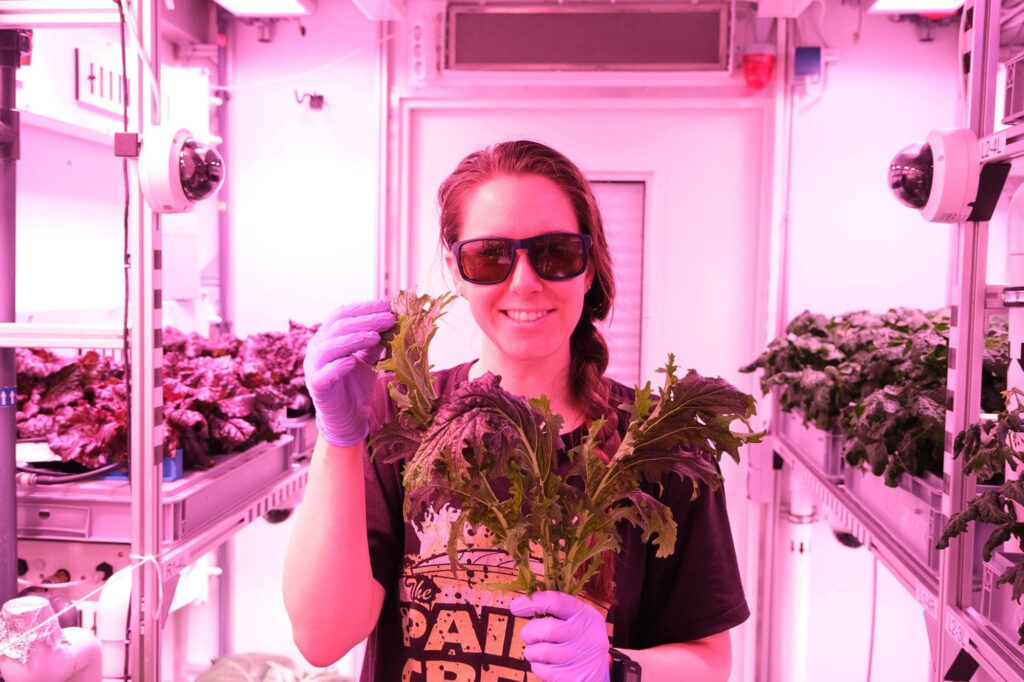
For the recording she uses a special time-recording eight-sided die as crew time will be a precious commodity on future missions to the Moon and Mars.
EDEN ISS project leader Daniel Schuber from the DLR Institute of Space Systems in the German city of Bremen said: “In an initial test run in the greenhouse during the 2018 mission we found that operations still took too much time.”
“Now we are working on optimising processes and procedures. We have learned a lot about operating a greenhouse under extreme conditions. We’re applying all this during the current joint DLR/NASA mission.”
In addition, the 10 overwinterers regularly answer questions about their eating habits or how the plants affect their mood since the mission also focuses on their well-being.
Wheeler added: “We hope to increase our understanding of having plants and fresh food for crews in remote, isolated settings like Neumayer III and ultimately for space.”
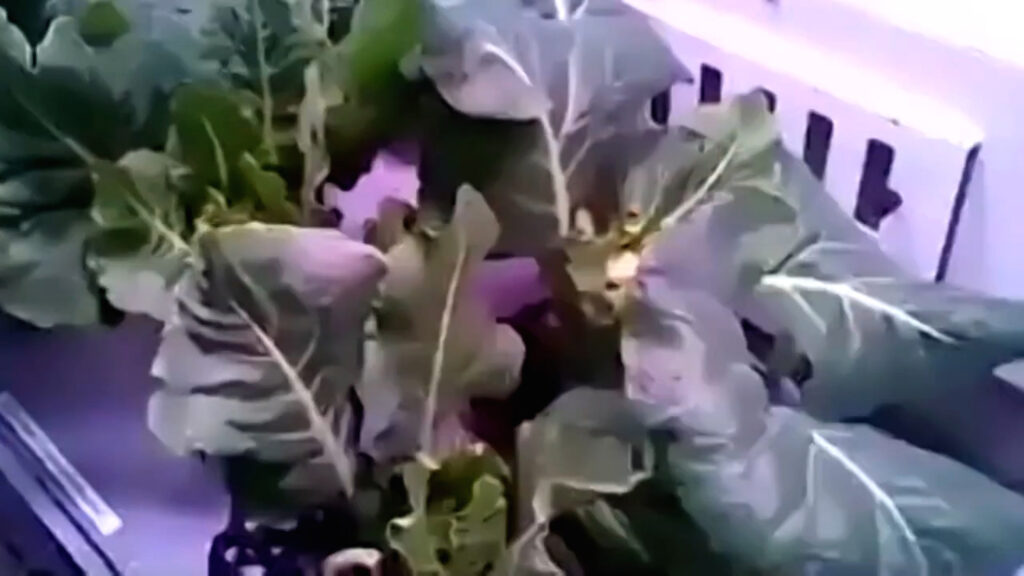
Jess Bunchek and the rest of the overwintering crew has reached the Antarctic continent on board the research vessel Polarstern on 19th January and have been residing at the Neumayer Station III ever since.
Medical Coordinator and Operations Manager at AWI Tim Heitland said: “EDEN ISS is an asset for the crew in many ways. I know from my own overwintering experience just how much you can being to miss fresh produce.”
“It’s not just about the taste, but also the smells, the colours and the fascinating fact that something can grow in this inhospitable environment. That’s why there are always volunteers in the overwintering teams to help cultivate and harvest the plants.”
The polar night at Neumayer Station III begins this year on 21st May and the first rays of sunlight will not reach the station again until 23rd July.
When asked about her motivation to be involved in the project and how she ended up being in Antarctica Bunchek said: “So, for me to get here it was pretty unconventional but I just kept thinking which dreams could I end up following.”
“I took German in high school and throughout college and though I just wanted to take a new language and learn it. Never have I thought that learning another language would bring me here for this particular research.”
She then encouraged everybody who wants to be included in a similar project and said: “If this is something you feel extremely passionate about – run with it. Absolutely run with it.”
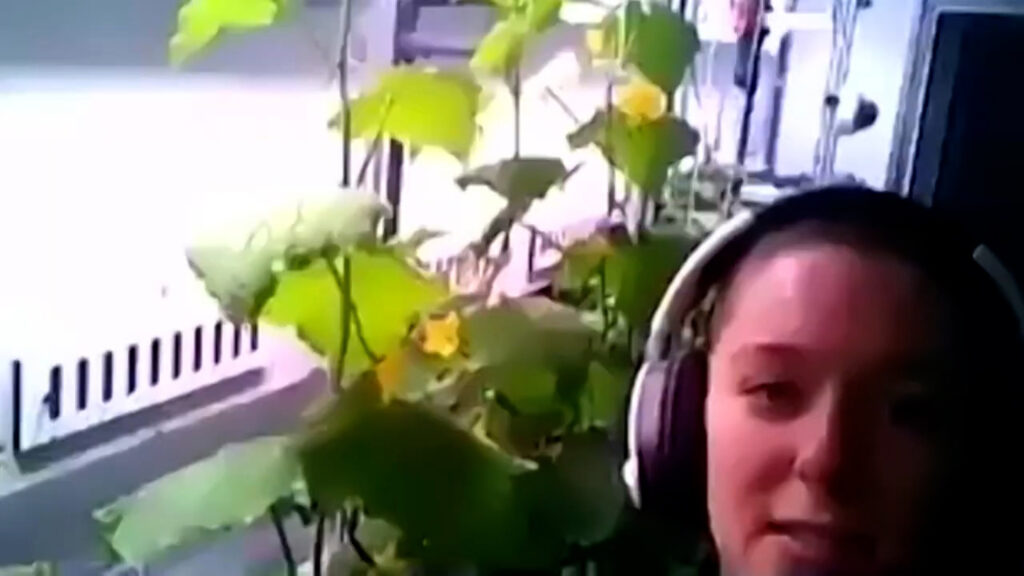
“Always remember who you are and what you individually bring to the table.”
Jess Bunchek also writes about her personal experiences on the Antarctica mission in the DLR dedicated blog.
The activities at the EDEN ISS Antarctic greenhouse can be followed on social media using the hashtag #MadeInAntarctica.



